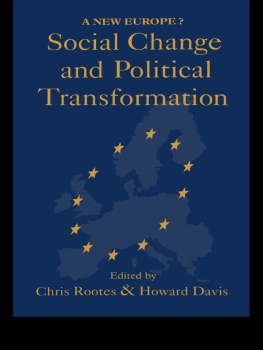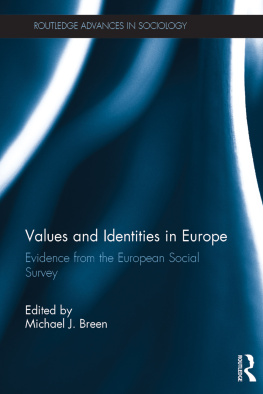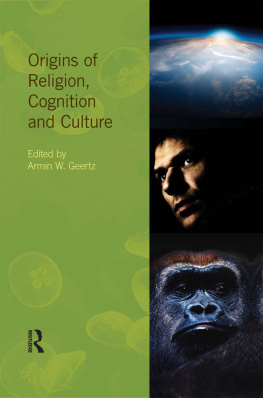
Rituality and Social (Dis)Order
Carnival has been described as one of the foundational elements of European culture, bearing an emblematic and iconic status as the festive phenomenon par excellence. Its origins are partly obscure, but its stratified and complex history, rich symbolic diversity, and sundry social configurations make it an exceptional object of cultural analysis.
The product of more than 12 years of research, this book is the first comparative historical anthropology of popular European Carnival in the English language, with a focus on its symbolic, religious, and political dimensions and transformations throughout the centuries. It builds on a variety of theories of social change and social structures, questioning existing assumptions about what folklore is and how cultural gaps and differences take shape and reproduce through ritual forms of collective action. It also challenges recent interpretations about the performative and political dimension of European festive culture, especially in its carnivalesque declension.
While presenting and exploring the most important features and characteristics of European premodern Carnival and discussing its origins and developments, this thorough study offers fresh evidence and up-to-date analyses about its transversal and long-lasting significance in European societies.
Alessandro Testa is Research Fellow in Anthropology at the Institute of Sociological Studies, Charles University, Prague.
Routledge Studies in Cultural History
92 Controversial Heritage and Divided Memories from the Nineteenth Through the Twentieth Centuries
Multi-Ethnic Cities in the Mediterranean World, Volume 2
Edited by Marco Folin and Heleni Porfyriou
93 History as Performance
Political Movements in Galicia Around 1900
Dietlind Hchtker
94 The Cultural Life of Risk and Innovation
Imagining New Markets from the Seventeenth Century to the Present
Edited by Chia Yin Hsu, Thomas M. Luckett, and Erika Vause
95 Popular New Orleans
The Crescent City in Periodicals, Theme Parks, and Opera, 18752015
Florian Freitag
96 Science in the Metropolis
Vienna in Transnational Context, 18481918
Edited by Mitchell G. Ash
97 Imaginary Athens
Urban Space and Memory in Berlin, Tokyo, and Seoul
Jin-Sung Chun
98 Rituality and Social (Dis)Order
The Historical Anthropology of Popular Carnival in Europe
Alessandro Testa
99 Irish Writers and the Thirties
Art, Exile and War
Katrina Goldstone
For more information about this series, please visit: www.routledge.com/Routledge-Studies-in-Cultural-History/book-series/SE0367
First published 2021
by Routledge
52 Vanderbilt Avenue, New York, NY 10017
and by Routledge
2 Park Square, Milton Park, Abingdon, Oxon, OX14 4RN
Routledge is an imprint of the Taylor & Francis Group, an informa business
2021 Alessandro Testa
The right of Alessandro Testa to be identified as author of this work has been asserted in accordance with sections 77 and 78 of the Copyright, Designs and Patents Act 1988.
All rights reserved. No part of this book may be reprinted or reproduced or utilised in any form or by any electronic, mechanical, or other means, now known or hereafter invented, including photocopying and recording, or in any information storage or retrieval system, without permission in writing from the publishers.
Trademark notice: Product or corporate names may be trademarks or registered trademarks, and are used only for identification and explanation without intent to infringe.
Library of Congress Cataloging-in-Publication Data
Names: Testa, Alessandro, 1983 author.
Title: Rituality and social (dis)order : the historical anthropology
of popular carnival in Europe / Alessandro Testa.
Description: New York, NY : Routledge Taylor & Francis Group,
2021. | Series: Routledge studies in cultural history; Volume 98 |
Includes bibliographical references and index.
Identifiers: LCCN 2020031246 (print) | LCCN 2020031247 (ebook) |
Subjects: LCSH: CarnivalEuropeHistory. | Popular culture
Europe. | MasksSymbolic aspectsEurope. | EuropeSocial
life and customs.
Classification: LCC GT4242 .T47 2021 (print) | LCC GT4242 (ebook) |
DDC 394.25094dc23
LC record available at https://lccn.loc.gov/2020031246
LC ebook record available at https://lccn.loc.gov/2020031247
ISBN: 978-0-367-61722-6 (hbk)
ISBN: 978-1-003-10621-0 (ebk)
Typeset in Sabon
by Apex CoVantage, LLC
Alla pervicace volont dellesserci. A dispetto di tutto.
In memoria di una certa idea di Europa.
E a Heleen.
The problem of carnival (in the sense of the sum total of all diverse festivities, rituals and forms of a carnival type) its essence,, its development under conditions of class society, its extraordinary life force and its undying fascination is one of the most complex and most interesting problems in the history of culture.
Mikhail Bakhtin
In a sense, every type of cultural performance, including ritual, ceremony, Carnival and theatre is an explanation of life itself. Through the performance process itself, what is normally sealed up, inaccessible to everyday observation and reasoning, in the depths of sociocultural life, is drawn forth.
Victor Turner
Carnival has been described as one of the foundational elements in European popular culture, bearing an emblematic and iconic status as the festive phenomenon par excellence. Its origins are partly obscure, but its stratified, complex history and its rich symbolic and social configurations make it an exceptional object of cultural and historical analysis. In Italo Calvinos words, Carnival is a necessary element to understand the ethnological fundaments of Western civilisation (un elemento necessario per comprendere i fondamenti etnologici della civilt occidentale).
This book is devoted to a broad historical-anthropological interpretation of European popular Carnival, its main cultural forms, religious dimensions, and ritually political/politically ritual dynamic characteristics, within the general framework of European festive culture. A so-conceived endeavour must circumscribe the geographical area (where?) and time period (when?) taken into consideration, the category of phenomena at the centre of the analysis (what?), their emergence and early development (from where/when?), the social agents that embodied and expressed them (who?), and the reasons why they did what they did (why?). The focus will be on Europe and European case studies, mostly but not exclusively from premodern times.
It is a bold endeavour, for reducing the And yet I will try, nonetheless.
The first chapter is devoted to an examination of the historical subjects: who were the bearers of the popular culture? Who were the people? Who represented the popular in the enactment of popular carnivals? In order to answer these questions, I will rely on a now rich and stratified tradition of studies, which I will summarise and discuss critically. This chapter questions existing assumptions about what popular culture is, but can also be considered an introduction and systematisation in the English language of a theory of popular culture from the South (from southern Europe), that is, as it was developed, mostly in





